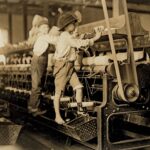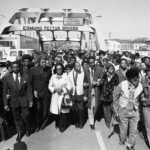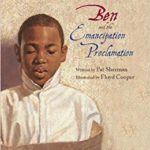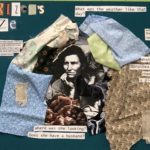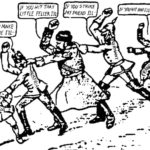The oldest students, who have been studying the Civil War and the Abolitionist movement, were treated to an end of the year field trip led by the amazing Vanessa Johnson. Read More >>
Civil War
Our unit started with learning about the Triangle Trade route, and locating and identifying the countries and goods involved. We then studied how Africans brought to the New World were Read More >>
Inventions
In January 2023 we started an Invention unit, inspired in part by the many inventions we learned about during our study of the Industrial Revolution. We started this unit by Read More >>
Industrial Revolution Essay
As a culminating activity for our year long study of the Industrial Revolution, all the students were asked to develop an essay evaluating its positive and negative effects. Many historical Read More >>
Industrial Revolution
To start this unit, students were asked to analyze a Lewis Hine photograph of children working in factories using the Visual Thinking Strategies (VTS). This led to a discussion of Read More >>
Inaugural Poetry
A group of our six older students were part of a poetry class inspired by Amanda Gorman’s spectacular presentation of “The Hill We Climb” at President Joe Biden’s inauguration in Read More >>
Systemic Racism
Our children, our students, live in a world that has developed all kinds of media and ways to transmit information, disinformation, ideas, and images. They hear the media, adults, other Read More >>
History and Lincoln
Students in the upper grades this fall started a unit on the Civil War. Before we delved into this history topic they were asked three questions to respond to Read More >>
The Great Depression Through the Eyes of Artists
The causes and effects of the Great Depression were studied through the eyes of artists Dorothea Lange, John Steinbeck, Woody Guthrie, a political cartoonist of the era and Langston Hughes. Read More >>
World War 1
The oldest students spent three months studying the causes and effects of World War 1. The causes were complex. Students looked at world maps showing imperialism around the world prior Read More >>
